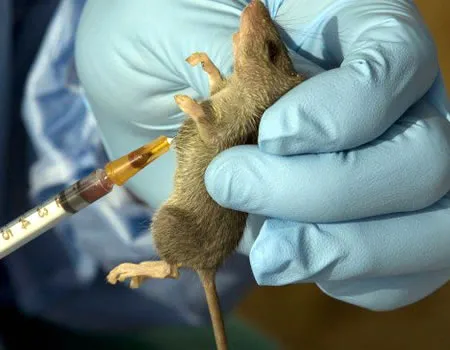Nigeria’s Centre for Disease Control and Prevention (NCDC) has activated its Lassa fever emergency operations centre in response to the country’s escalating incidence of the disease.
According to the NCDC’s recent situation report in January 2023, compared to January 2024, total confirmed cases will range from 29 in 2023 to 53 in 2024, fatalities will range from 8 to 6, and the case fatality rate will range from 27.6 per cent in 2023 to 11.3 per cent this year, covering 6 states in 2023 to 9 states in 2024 and spanning 13 to 25 LGAs in the country.
The NCDC further disclosed that the activation through its national Lassa fever technical working group is a result of a risk assessment conducted by subject matter experts from relevant ministries, departments, agencies, stakeholders, and major partners, which revealed that “the outcome of the risk assessment placed the country at “high risk” of increased risk of Lassa fever transmission and impact due to some factors like an increased number of states reporting cases and high case fatality.
A statement signed by the NCDC Director General, Ifedayo Adetifa, on Thursday stated that in 2023, there was an increase in the number of cases reported from week 49 and related healthcare personnel infections over three weeks.
“This increase indicated an early peak in the national high transmission season, which typically occurs from January to May each year.
“The zones of impact of Lassa fever have been increasing across the country with a risk of international exposure, and prior to the activation of the EOC, the Federal Ministry of Health and Social Welfare (FMOH and SW) through the NCDC had put up preparations for this Lassa fever season, and the LF-EOC activation will coordinate a national response, particularly across affected states, to help minimise suffering, reduce mortality, interrupt disease transmission, and address socioeconomic complications caused by Lassa fever using a one-health approach.
The NCDC emphasised that the national response requires all of the government and all of the people’s participation, along with the support of partners and other stakeholders, as collaboration with the support of states will continue to develop and implement evidence-driven outbreak response plans for their territories.
It therefore cautioned members of the public that it is their common obligation to preserve personal, environmental, and food hygiene in the fight against Lassa fever, as early detection and quick presentation at health facilities considerably increase survival chances.
In 2023, Nigeria reported 9155 suspected cases, 1270 confirmed cases, and 227 deaths, with a case fatality rate of 17.9 per cent throughout 28 states and 124 local government areas.
FULL LIST: 45 visa-free countries Nigerian passport can travel in 2024
Nigeria sits behind Ghana, Guinea, Kenya, Lesotho, Morocco, Benin Republic and Namibia which are at…
How my brother and I became professor same day in same varsity —UNILORIN don
Recently, two brothers –Ahmed Oloduowo Ameen and Mubarak Oloduowo Ameen– were promoted to…
‘I expected N2,000 as my share from sale of human head we got at Saki cemetery’
Thirty-two-year-old Alli and Abdullahi, aged 35, who were the two suspects arrested by…
Why Port Harcourt refinery is yet to start production—Soneye, NNPCL Chief Comm Officer
Mr Femi Soneye is the Chief Corporate Communications Officer (CCCO) of the…
Fear women, fair women and Minister Ojo
Betta Edu, Sadiya Umar-Farouq and Halima Shehu are the reigning women in our…
What you should know about players in Nigerian 2024 AFCON team
The Nigerian football team have appeared in the finals of the Africa Cup of Nations on twenty different occasions. Nigeria has…
